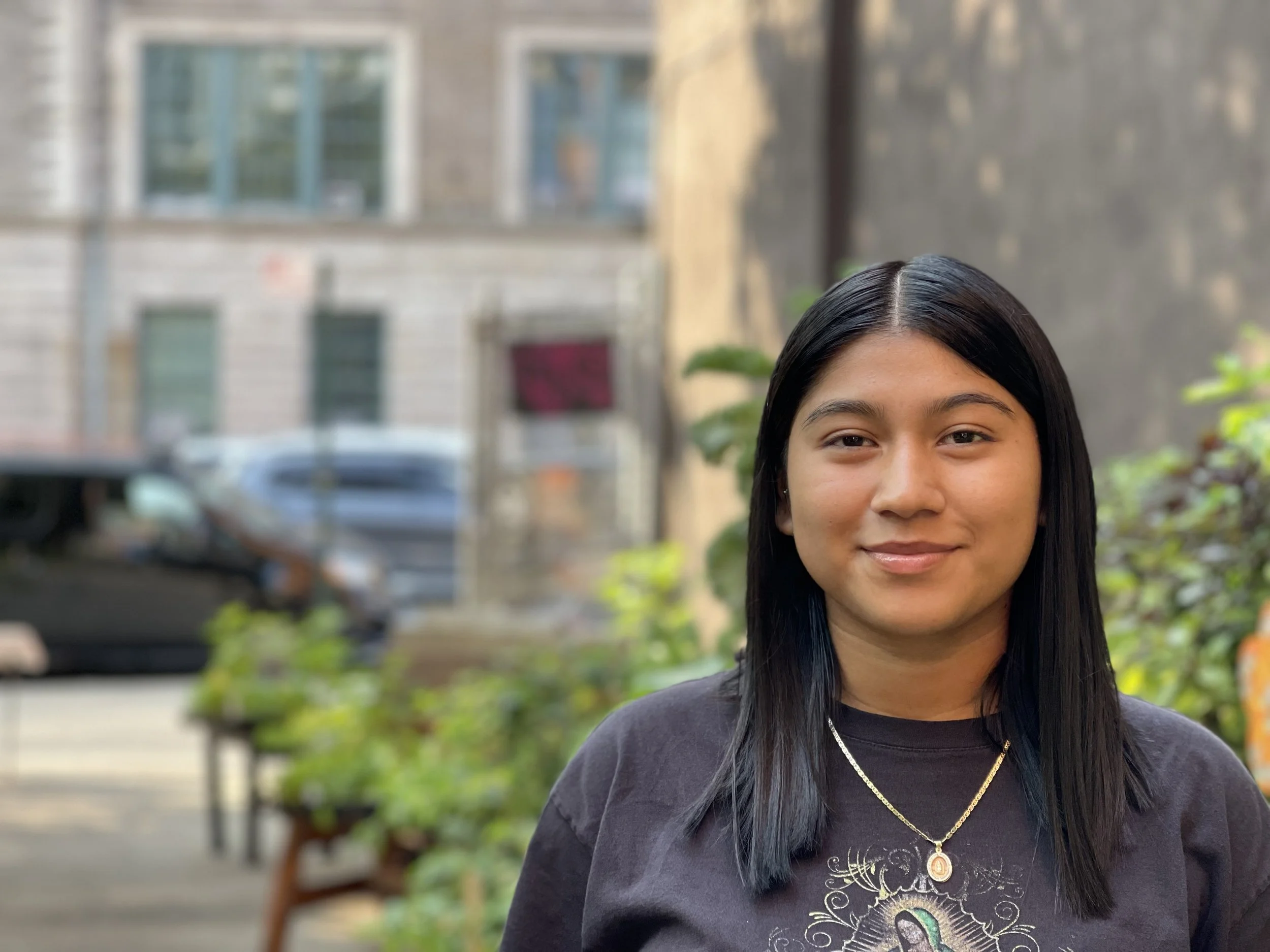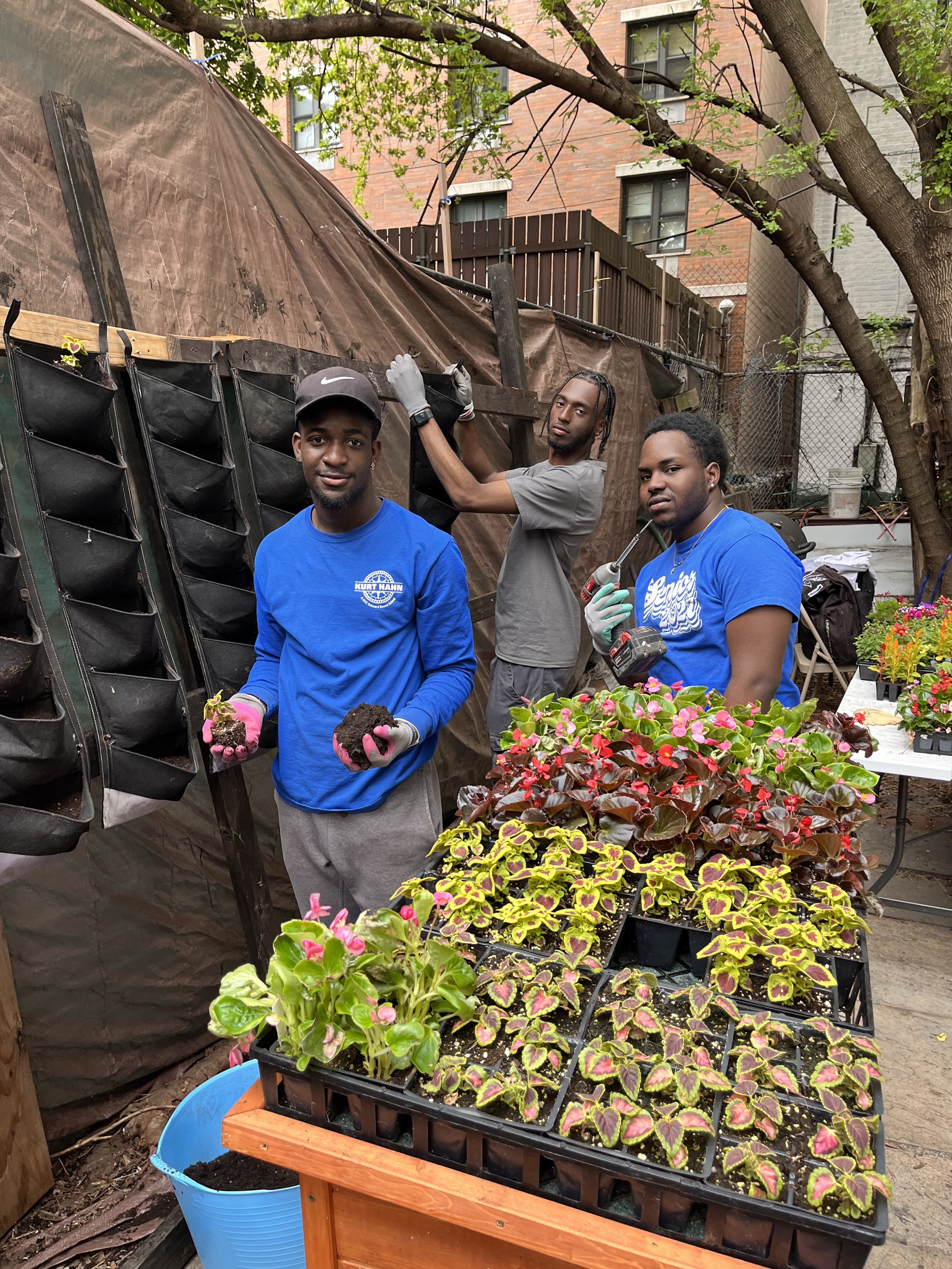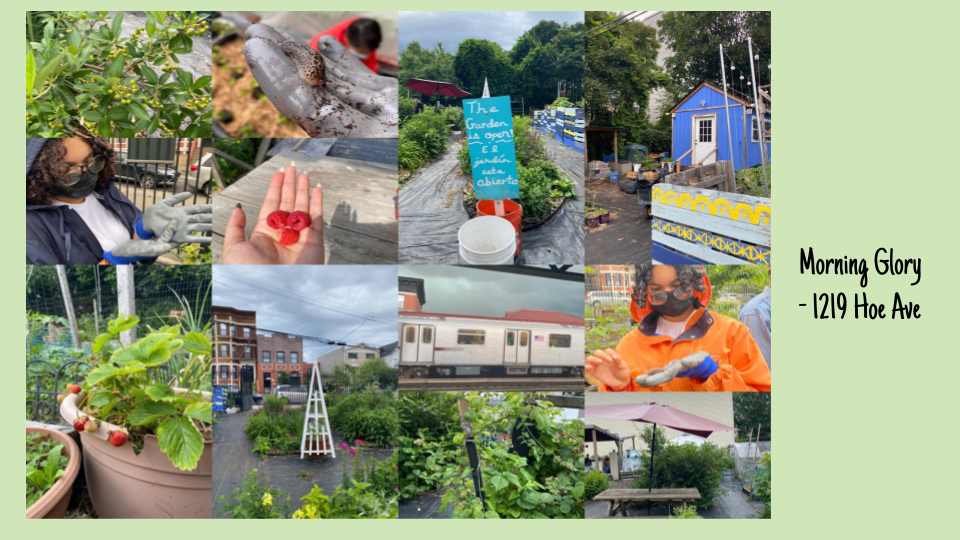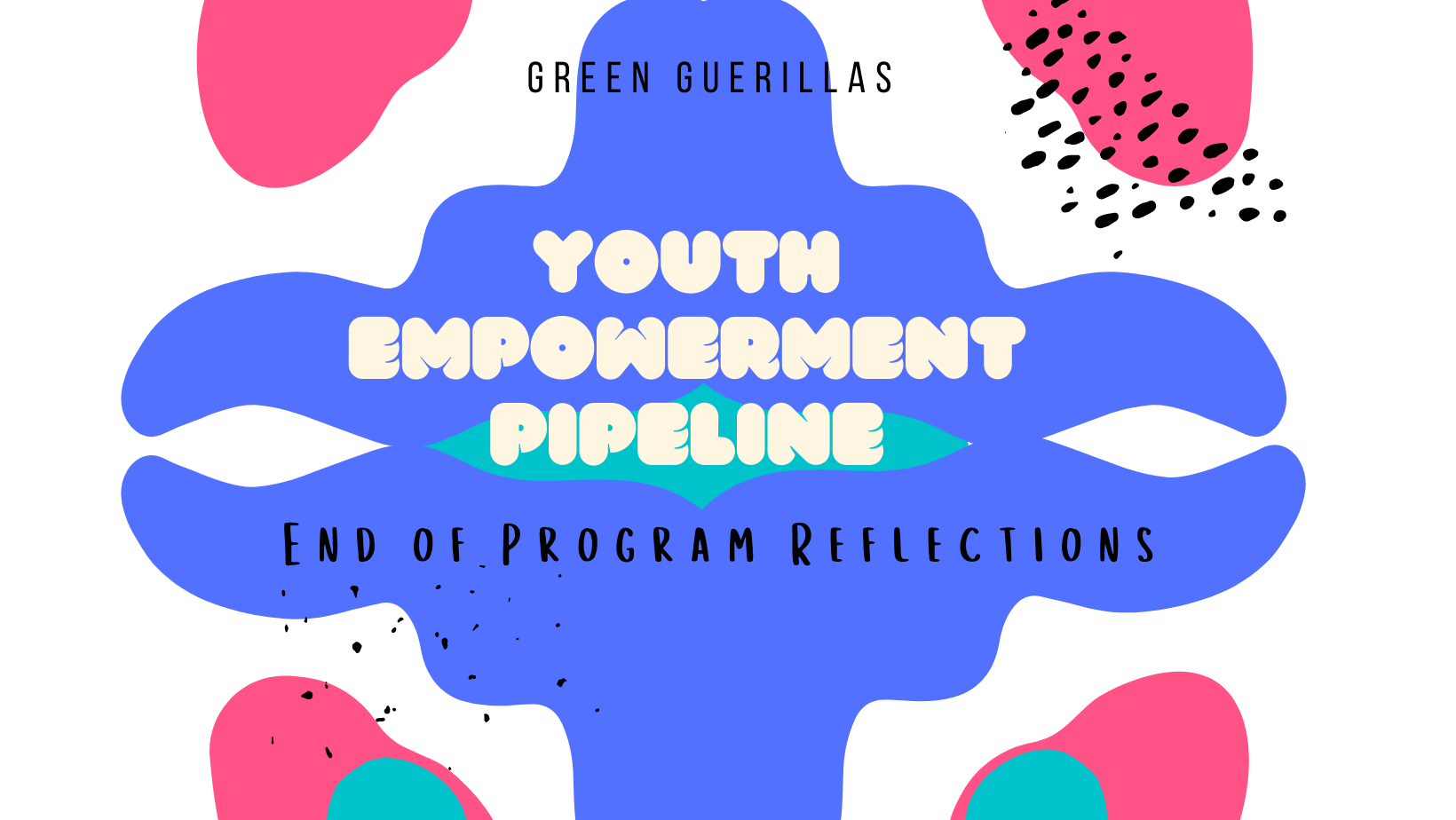
Training the Future
Hear from our YEP Returning Interns on their personal journey in the program and why they choose to continue their growth.
Perla
Jabari
Travis
Community Gardens in the Face of COVID.
Even as COVID has taken so much away, our community gardens give back. Community gardens allow youth to form intergenerational bonds with elders as well as nature, which contributes to a better mental status. In this video, I interviewed gardener Gemma and fellow Youth Empowerment Pipeline members to prove community gardens are vital to supporting mental health during these troubling times.
— By Rakdh A.
“I feel like a different person. I am able to understand a whole new world and share this knowledge with others.”
— Eyinade O.




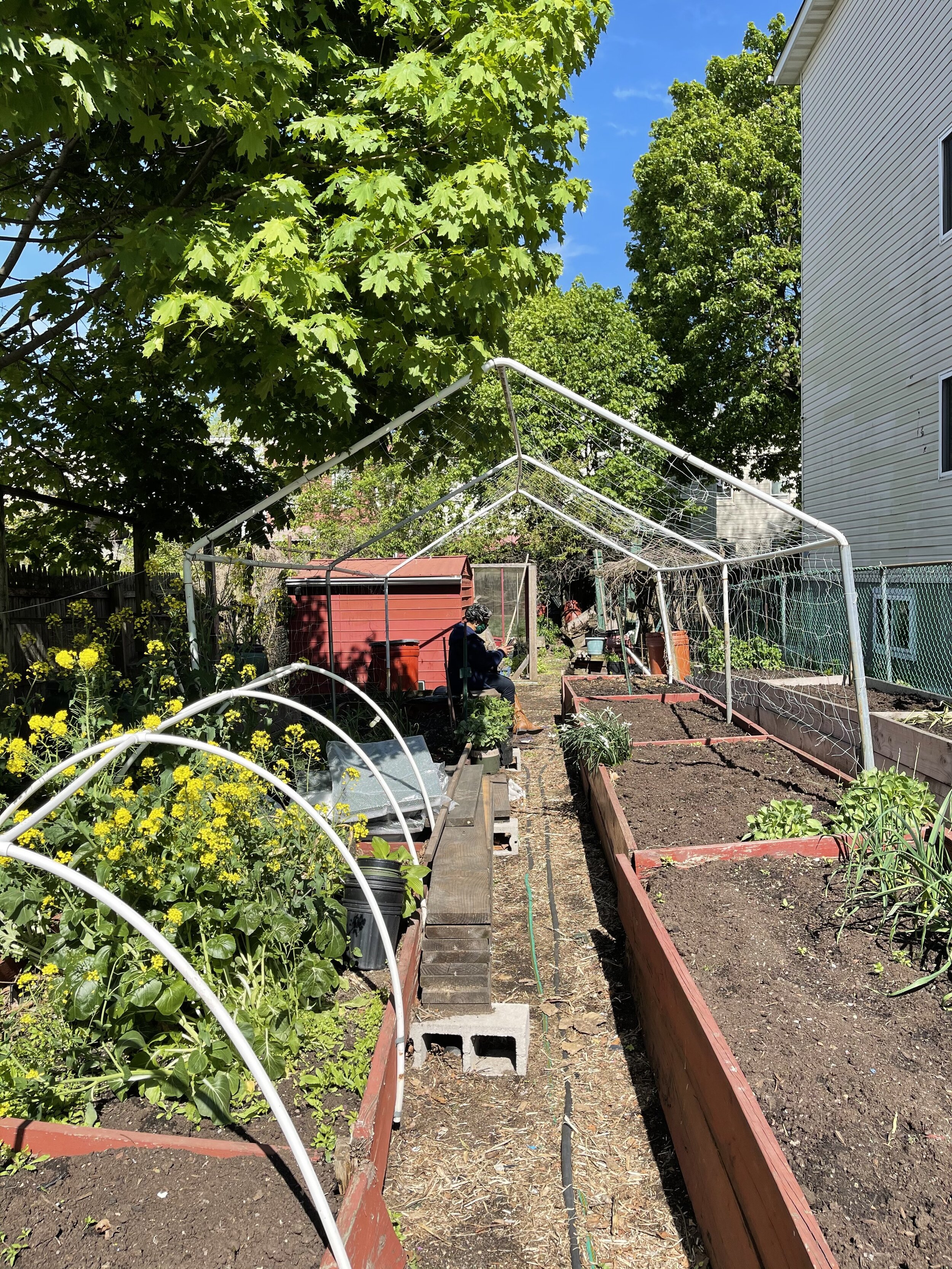

Jerry & the Senior Gents Garden
From the beginning of April until now (late June), I've been working at a local community garden in East New York called Jerry & the Senior Gents. My supervisor is Vere Gibbs. The garden was founded on November 20, 2002, and is owned by Parks and Recreation. When Vere arrived in 2007, the green space looked to be abandoned for approximately 10 years. The neighborhood was happy that the abandoned space was finally being utilized for a beneficial purpose.
The COVID pandemic is still affecting Jerry & the Senior Gents. Before the pandemic, the garden did not have a lot of participants to help around but the pandemic caused a dramatic loss in participation and cut off financial income from the farmer's markets. If you did not know, community gardens in NYC are shutting down now often due to gentrification in the neighborhood and the government wanting to use the space for more construction.
Being a part of this community garden for nearly 9 weeks, I can proudly say that gardening has positively impacted me mentally and physically. I was introduced to a new environment where I had no prior experience, so I was nervous at first. Now, I am more comfortable and still learning new information as well as practicing garden techniques. I learned how to plant, care for the plants, build a compost system, pull weeds, and more. Participating in a garden together is what makes it a community space, and we need this after a long and stressful year.
—By Perla A.
Hard Work Pays off!
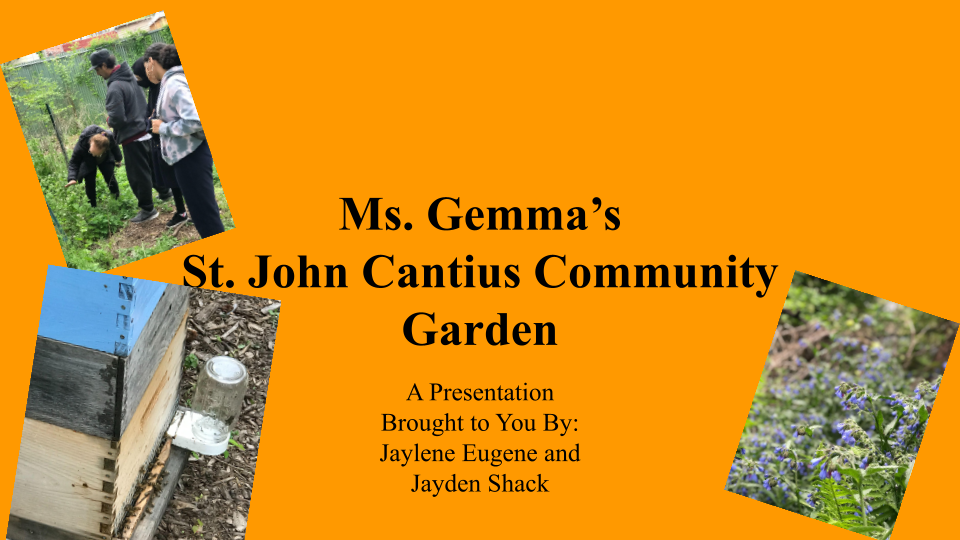
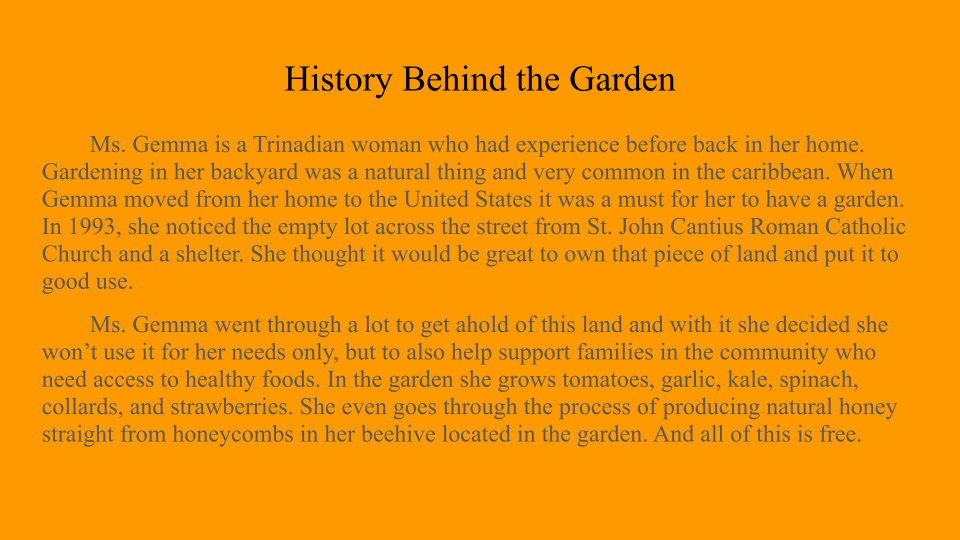

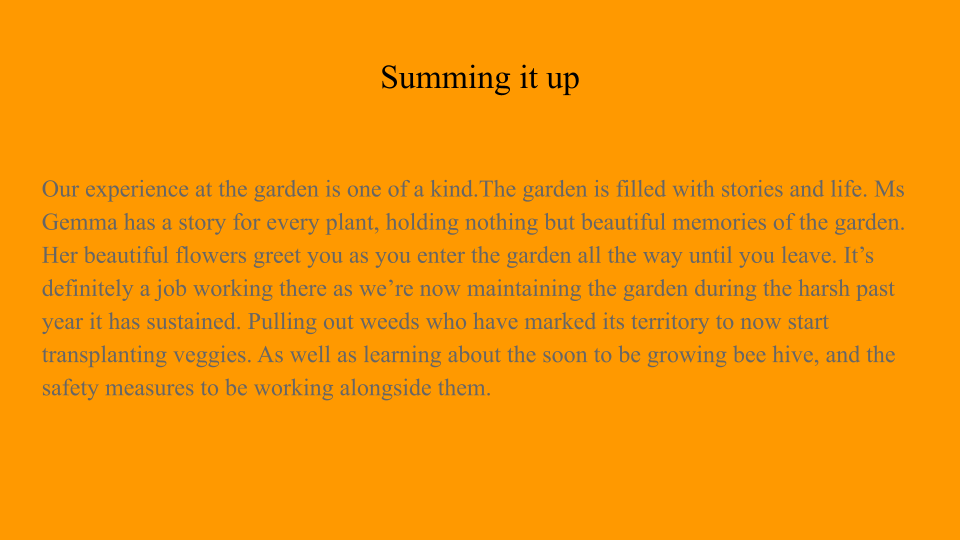

Morning Glory Garden
Morning Glory Garden existed as a guerrilla garden located at 149th Street and Southern Boulevard in Mott Haven from the year 2009 to 2011 until displacement when they had to fight for a newer space. In 2014, the current location was awarded under a program initiated by the local government that promoted healthy communities. As a Greenthumb licensed community garden, the goal is to expand annually and provide harvested produce to the neighborhood. During the Summer and Fall seasons, boxes of food are sold to Bronx residents for affordable prices. This helps with the food insecurity issues and provides access to fresh food.
The garden plays a huge role in the community by bringing the residents together, educating many about agricultural life, and helping with the distribution of food in the city (as well as other community gardens).
Due to the Covid-19 outbreak, many public places shut down at the beginning of the year in 2020. This affected Morning Glory Garden and led members to halt their vital work. Workshops and events that would meet the needs of the community were also stopped for a while. But in recent months, things are opening up slowly with safety protocols put in place.
People should feel urged to embrace a sustainable approach to the food they consume and the welfare of their environment. In a crowded city, making choices for an eco-friendly environment goes a long way.
—Eyinade O.
I felt more at peace. I’m not usually outside let alone interacting so closely with nature since the pandemic started and I feel like it’s helped me slow down. To learn about the uses, names and other miscellaneous facts about the food I was planting, and even things I didn’t consider food (such as different flowers and wild vegetables). It’s helped me think and reflect about my time in the Dominican Republic and what my food means to me.
It’s important that people of color have access to community gardens.
There is a significant connection to food and one’s identity. Community gardens in urban areas allow people to connect with their cultural identity. Thank you to Aazam, Cayla, Ximoso, and all the wonderful folk from Morning Glory Garden.
—Karilyn D.





My Experience at the Wycoff FarmHouse Museum
In the early 1650s some farmers by the name Pieter and Grietje were able to get a hold of a farm in the community of Nieuw Amersfoort, which is now known as the borough of brooklyn. The house where they lived, which was of course near the farm, was just a one room house with windows, doors at each end and large open fireplace. This house still stands today. Of course the house has been renovated, and expanded, ultimately modernized over centuries into what they have now, which are, 6 rooms, 3 fireplaces, a walk-up attic and a root cellar as well. Pieter and Grietje, also known as the wyckoff family, passed this site down to eight generations until the year of 1901, the land and the house were sold to developers. Of course it was opened as a museum until after the early 1980s because it had to be restored after a devastating fire, but it is now restored and open as a public museum and a community garden.
The museum gives back to the community, they give food back to the people, the far stands on Saturday people get fruits and vegetables at affordable prices, everything is fresh. Also, the events contribute a lot to the community’s bond and involvement.
The Wyckoff museum was impacted in a negative way by Covid because it is a very big community space where family events and public tours along with other opportunities are held. Covid 19 closed down almost everything and having to maintain a 6ft distance can make it hard to hold events like this. Also during the pandemic not many people were outside, everyone was cautious and/or stuck in their houses every day, and since the community garden is a very big and safe space where anyone can come and stay or volunteer too but the pandemic limited that.
My experience at the garden has been the best experience ever. Planting seeds, learning about the irrigation system, and planting mushrooms has taught me a lot. I've also seen a lot of volunteers and other people just come in and sit down around the park and help plant or give suggestions and preferences as to what we should grow. People bring in food for the volunteers in the garden and I've seen people bring leftover food and scraps for the compost. It's a big family and I've learned that by being in the garden and being a part of them too.
Community gardens affect the community in various positive ways. They help unite everyone by bringing people of different backgrounds and ages together. The garden also increases access to healthy and affordable food. We need gardens because they help the community be a COMMUNITY.

